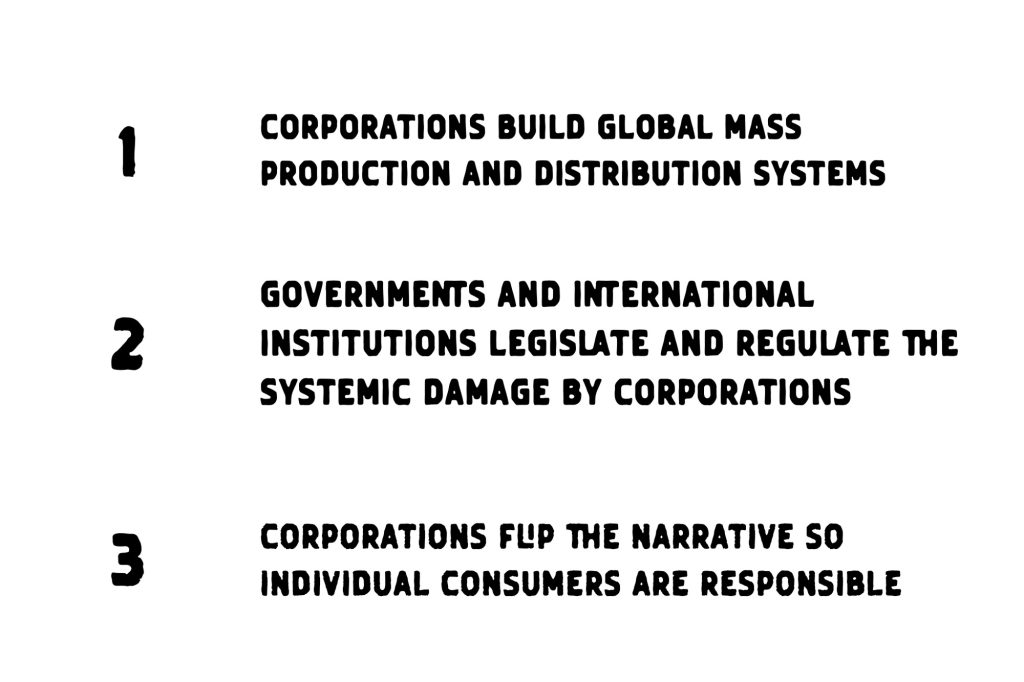
This week in the UK, the government has advised citizens to delete cloud-based data so as to save water.
Meanwhile, there are stories that more huge data centres need to be built to support AI development.
The citizens are being irresponsible.
The corporations are being reasonable
This is clearly an inverted narrative. It is a judo move that corporations learnt a few decades ago.
Building corporate global systems and naming the consumer
Thru the 1950’s and 1960’s, corporations built complicated systems to mass produce and globally supply products and services to individuals. The individuals are retitled as consumers. The Age of the Consumer was born.
In the 1960’s and 1970’s, governments and international institutions investigated, legislated and enforced regulations on damage and bias of systems. New laws on environmental damage, gender and race bias and economic unfairness.
Corporations did not want to invest in safer, better systems that met such regulations.
They reversed the narrative pipeline. They flipped the story.
The consumer is king and the king is to blame
It was thus the consumers who caused the damage because they bought and used the products and services. Millions of individuals created the global damage and it was their misbehaviour not the corporations. The corporations were the servants of the people and the consumer was king.
The belief in Consumerism enabled corporations to shift blame for systemic issues onto individuals. The Thatcherite and Reaganite periods of Individualism supported this narrative. The power of individual people (not the older socialist idea of power of massed people). It was easy to place blame onto people whose egos had been built up by both corporations and politicians.
The corporations could now appeal as allies to institutions by offering ways to advise and help mitigate and minimise the damage caused by all those consumers, those citizens, those people.
The shift enabled a few very large powerful corporations to place responsibility and blame for failure to change onto millions of powerless individuals.
Flipping the narrative
This was a narrative judo move.
The egotism and individualism of consumerism used against those people to make them feel responsible for systemic problems that they had neither the power nor the capabilities to deal with. The regulatory problems of corporations flipped onto individuals.
This narrative continues to play out today. In Geneva, the talks to regulate and reduce plastic production and use are collapsing. The use of plastic has hugely increased as the need for oil for car engines has reduced. Just Stopping Oil production is still not considered as an option. The systemic solution and the corporate regulation are cast aside.
Meanwhile, today, thousands of individuals will feel guilty that they failed to wash and recycle a plastic container (which will probably never actually be recycled).
One comment: